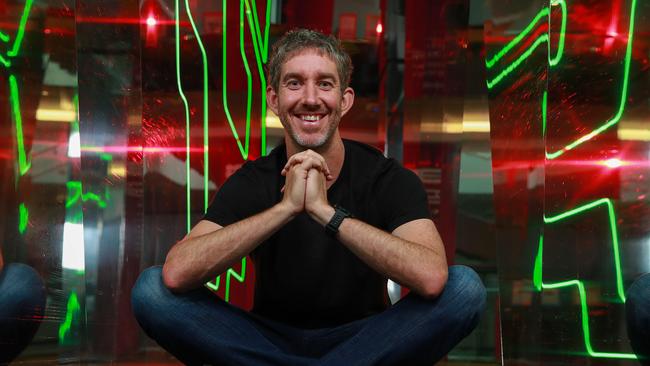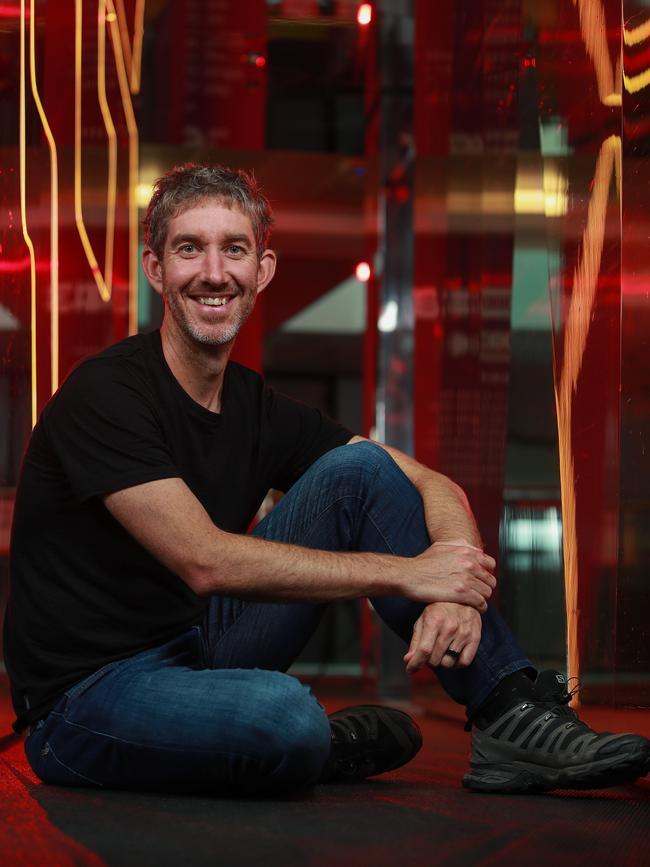Why Atlassian’s Scott Farquhar wants corporates to shape up
Scott Farquhar wants Australian corporate leaders to start giving away their money sooner, rather than later.

Atlassian is already Australia’s biggest tech company. It’s worth about the same as Telstra and Afterpay combined, and its software is used by 25 million people across the world every month. But its co-founder and co-CEO Scott Farquhar believes he can have a bigger impact in the world through philanthropy than his world-beating software outfit.
After starting Atlassian, Farquhar and Mike Cannon-Brookes co-founded Pledge 1%, a program for companies and their employees to donate 1 per cent of their time, equity, product and profit. It’s a response to what the Sydney-born executive says is a mounting problem in Australia of businesses lagging behind the rest of the world when it comes to giving back.
He is calling on corporate Australia to join his program and pick up the slack.
“Society has evolved,” says Farquhar. “It used to be churches and community groups that were vehicles for people to be philanthropic. And, for better or worse, people now spend more time engaged with work, so it’s the job of businesses to step up and provide employees with opportunities to be philanthropic.”
Atlassian started Pledge 1% with other foundation partners Salesforce, Rally and the Entrepreneurs Foundation of Colorado in 2014. Farquhar traces the program’s roots back to a culture of giving back during his childhood days with Scouts, as well as a life-changing backpacking trip to Vietnam with wife Kim Jackson and education non-profit Room to Read.
“We took a dusty bus ride four hours out of Ho Chi Minh City, and we got to a river, and the bus couldn’t go any further,” he says. “Then we got on a minibus, that takes you an hour into the forest, to a small school in the village. We were there with other donors, and these girls came up, who must have been five or seven years olds. They were crying with gratitude, they were sobbing. My seven-year-old is not the most thankful kid in the world, but these girls were saying ‘thank you for the opportunity’.
“That was our first corporate philanthropy.”

Following that trip, Farquhar had an earnest conversation with his co-founder Mike Cannon-Brookes about what type of company Atlassian wanted to be, and what values it wanted to represent. The pair had read an article about the Pledge 1% model used by fellow software company Salesforce, and decided to replicate that at Atlassian. Farquhar says that fast-growing tech start-ups are typically strapped for time and extra cash, but have no excuse to not donate 1 per cent, no matter their size.
Atlassian’s giving has grown at the same pace as its valuation. The company has now volunteered more than 37,000 hours of employee time to local communities, and donated more than $US17m ($22.3m) to education-focused charities. Farquhar says the benefits are felt inside the company, too. He points to internal data from Atlassian showing that employees are more engaged at work when they feel they are giving back.
“There’s some misbelief that to give back, you have to be old and rich and grey,” says Farquhar. “We felt like, no, we don’t want to wait until we’re old and grey to give back. And there’s a misconception that you’ve got to be a big company, and then once you’re a big company, you’re a bank and you can give out around you. We wanted to change that, and we put Pledge 1% on our website, and we soon started having employees who would say they joined Atlassian because of the giving back.
“We’re not trying to cure cancer, we’re just telling our employees ‘what is special to you?’ and then to spend time on it and give back in that way. Corporate philanthropy shouldn’t be something you just do at the end of your career: that’s a total farce.”
Australian tech company Cashrewards had already joined Pledge 1% when it recently listed on the ASX, a move which then actioned a 1 per cent gift to the Starlight Foundation. Chief executive Bernard Wilson says initially the company joined when its founder saw Starlight’s work first-hand during his child’s ultimately successful battle with childhood cancer.
“However, it was quickly apparent how much being part of Pledge 1% would benefit our business and I can genuinely say that we don’t think we would be where we are today without it,” Wilson says. “From a member perspective, whenever we talk about our pledge the response is incredible and, because we’ve baked a 1 per cent cashback pledge into our core mechanic, our members have a clear line of sight to the contribution we make together every time they shop. We can also see that Pledge 1% has the potential to help us attract socially conscious investors to help fuel our growth.
“What Scott and the other pioneers of the movement have achieved in such a relatively short space of time is incredible. A new generation of business leaders with people like Scott at the forefront truly understands the power of putting purpose at the centre of both strategy and execution, and Pledge 1% is a perfect starting point for any business looking to do so. We would strongly recommend businesses of all shapes and sizes consider making a pledge.”
Farquhar says he hopes his legacy isn’t Atlassian, but instead what he wants to ultimately accomplish with Pledge 1%. “In terms of Pledge 1%, we’re at 10,000 companies, we’re at hundreds of millions of dollars pledged, and that affects billions of people potentially,” he says. “And I’d love for that to be my legacy, my tombstone, or what people curse at me when I’m gone. The legacy would be around Pledge 1%, that’s what I want to be known for.”

To join the conversation, please log in. Don't have an account? Register
Join the conversation, you are commenting as Logout